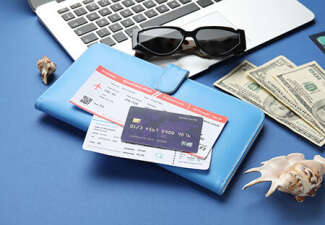The content on this page is accurate as of the posting date; however, some of the offers mentioned may have expired.
Most credit card issuers will not approve an applicant with no income whatsoever. Credit card issuers are required by law to verify annual income. This is needed to assess each applicant's creditworthiness and ability to pay back debt.
However, it's important to understand that "income" can mean more than money earned through a job. There are various sources of income that qualify for listing on credit card applications, particularly if you're a young adult who's a student. Here are some examples of income sources that can be included in annual income on credit card applications:
- Employment wages - either part-time or full-time (wages, salary, or tips)
- Money earned from freelancing or independent sources
- Fund distributions, such as trusts or retirement funds
- Investments
- Income from rental property, interest, dividends, and retirement benefits paid
- Scholarships, grants, and similar financial aid for education
- Money that is regularly deposited into your account by someone else, if you're under 21
- Commissions
- Unemployment benefits
- Social Security payments
- A spouse's or partner's income (if the applicant is married)
Having bad credit in addition to no income makes it even harder to get a credit card, but there are still options for you. Some types of cards may be easier to qualify for if you've lost income because you're unemployed or if your credit has suffered because of difficulty paying bills on time.
Secured credit cards are one option for someone with limited, no, or bad credit history. To open a secured card, you must deposit money with the credit card company. This security deposit reduces the company's risk, and the deposit amount required is usually the same as your credit limit. Keep in mind that you still need to qualify for the card, and the issuer may pull your credit file to determine your creditworthiness and ability to pay.
If you're a student, you may consider a student credit card instead of a secured card, which may fit better into your current financial situation.
If you can't or don't want to get a credit card in your name, you can ask a friend or family member to add you as an authorized user on their card if the credit card issuer allows it. But be sure you and the account owner understand how it works so neither of you hurt your credit.
Every financial situation is unique. If you don't have a job, but you do have other reliable income, you may be able to manage monthly payments and keep your balance low. This could help you with building credit history while you search for a job. However, if you don't have a reliable income, you may have a hard time managing your credit card bill, which could lower your credit score. In these circumstances, it may be best for you not to apply for new credit. The best credit card for you depends on your unique circumstances.






